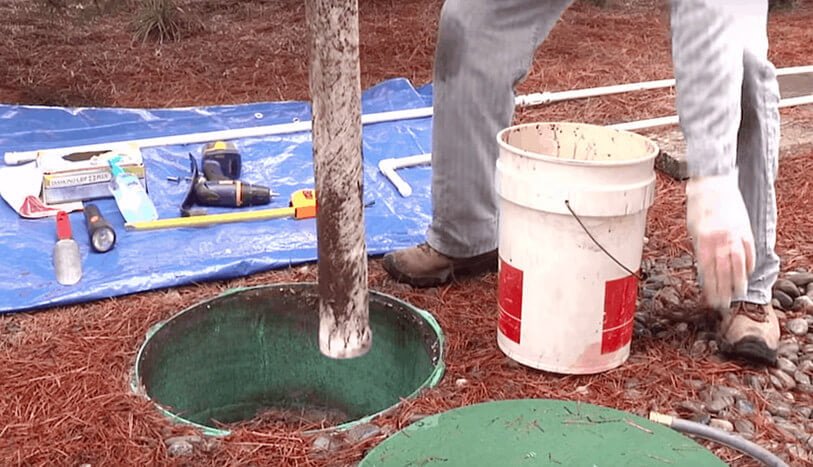How do you keep your septic tank in good condition? Do you rely on your septic tank to dispose of wastewater and waste solids? You may have come across questions like these about your septic system. You may not know why it is essential for the enzymes to exist in your septic, system, but it is very beneficial.
Enzymes are made up of amino acids. They are instrumental in your septic system. Aside from them, a Septic system has got several living organisms that allow it to operate smoothly, including bacteria. Although they naturally exist in your septic system, there are a few things that can affect their existence. Below we shall discuss why these enzymes are essential for your septic system and what you need to do to maintain them.

More on LivingProofMag
Is Ridex Good for Septic Tanks
How to Break Down Solids in a Septic Tank
Homemade Septic Tank Treatment
Why Your Septic Tank Needs Enzymes and Bacteria
A septic system depends on natural processes to break down organic solids. Once broken down, there then self to be released into the soil. Naturally, the presence of enzymes and bacteria in a septic tank helps with the whole process. Once the processed liquids are released into the drain field, the remaining organic matter is also broken down by other physical and natural methods.
Enzymes aid the bacteria to break down organic solids on the molecular level. The smaller molecules are then digested easily by the bacteria. In a healthy system, bacteria produce enzymes. You can choose to boost them by supplying some more enzymes through additives that can be flushed to the drain.
Therefore, once your septic system lacks these enzymes and bacteria, it will have a lot of issues.
How Enzymes Help In Your Septic System
- Prevent overfilling
Enzymes in your septic tank play an essential role in it. They prevent your septic tank from backing up or even overloading. Under the best conditions, the enzymes will enable this without you lifting a finger.
- Control odors
They reduce odors in the septic tank. Since septic systems are not the best smelling things, they are usually located away from your home. Enzymes help to mitigate and minimize the lousy scent that comes from the septic system.
- Economical
Enzymes are economical, meaning you will not spend a lot on septic tank pumping. Additionally, they are 100-percent environmental friendly and hygienic.
- Prolongs life of the soak away
Enzymes are also responsible for removing oil and grease, which would be discharged off in the soak away. This would lead to building up between the stone chips and inhibiting drainage into the soil.
Other roles that enzymes play to help your septic system
- They reduce gum and pectin that can cause glazing of drain fields and drainage pits.
- They eliminate soggy soil and surface puddles caused by clogging of a drain field.
- They maintain your entire plumbing system and keep it healthy and functioning well.
- Enzymes also improve percolation.
What You Do That Can Affect the Enzymes and Bacteria in Your Septic System
There are a few things that most homeowners do that can kill the bacteria in the septic tank. Of course, cleaning is essential, but in most cases, you may end up using substances that can kill the beneficial bacteria once put down the drain. Household cleaners such as Lysol, de-cloggers like Drano bleach, and even hydrogen peroxide are designed to kill bacteria. Once used to clean and then flushed down the drain, they will not only kill the bacteria but also contaminate the groundwater.
Other things that homeowners do are putting paints, medications, pesticides, chlorine, or even automotive fluids down the drain. This will also kill the much-needed bacteria and enzymes in the septic system.
How do I keep my septic system healthy?
The septic system is one of the most crucial elements of a residential property. It isn’t effortless to maintain and expensive too. If you follow some trick, you do not waste your money.
- Inspect and Pump frequently: you should inspect at least every three years by a septic service professional.
- Don’t Overload the Septic Tank and Drain field: Do not waste water because it makes septic tank overload.
- Use an Efficient Toilet.
- Use Garbage Disposals Wisely.
Cleaners safe for a septic system
It is essential to know what cleaners are reliable to use when you have a septic system. Like we mentioned using too many chemicals kills the bacteria and enzymes in your septic tank. Therefore, you can use the following cleaners because they are safe.

Go for products that come with a label showing that they are safe to use with a septic system.
Biodegradable cleaners are also safe for septic systems.
When it comes to laundry detergents, look for non-toxic, non-chlorine, phosphate-free, and biodegradable detergents. These will not kill the enzymes in your septic system.
Other cleaners include
- Ammonia products used in small amounts will not kill bacteria in a septic system. Just don’t mix it with other chemicals.
- Drain cleaners should also be used sparingly to avoid damaging the septic system. Use only liquid drain cleaners, not foam.
- Water-based cleaners are products with eater as the first ingredient.
- Epsom salts are beneficial as they increase magnesium into the soil.
- Vinegar
- Oxiclean
- Baking soda
- Borax, among other cleaners.
Other means of septic system maintenance
Although the enzymes and bacteria will do their jobs, they won’t completely break down all of the organic solid waste. You can do the following to have your septic tank maintained.
Carry out responsible pumping. Depending on the size of your household, you need to ensure that your septic system is pumped after a few years. This will prevent the accumulation of solids in your septic tank.
With time, there will be an accumulation of solids in the drain pipes. It is advisable to high-pressure pressure water jetting once in a few years. This will remove the debris or solid waste that could otherwise clog the pipes.
Install an effluent filter so that it prevents solid waste from going into the drain field.
Conclusion
Enzymes are catalysts that speed up a chemical reaction. They play several roles in your septic system. Although they naturally exist in the septic system, you need to avoid cleaning with substances that can kill them. You can also choose to buy enzyme additives for your septic system to ensure thorough and proper functioning.
We hope this article has helped you understand the importance of enzymes and bacteria in your septic system. All you have to do is to ensure proper cleaning practices to maintain their existence and have a clean environment.
